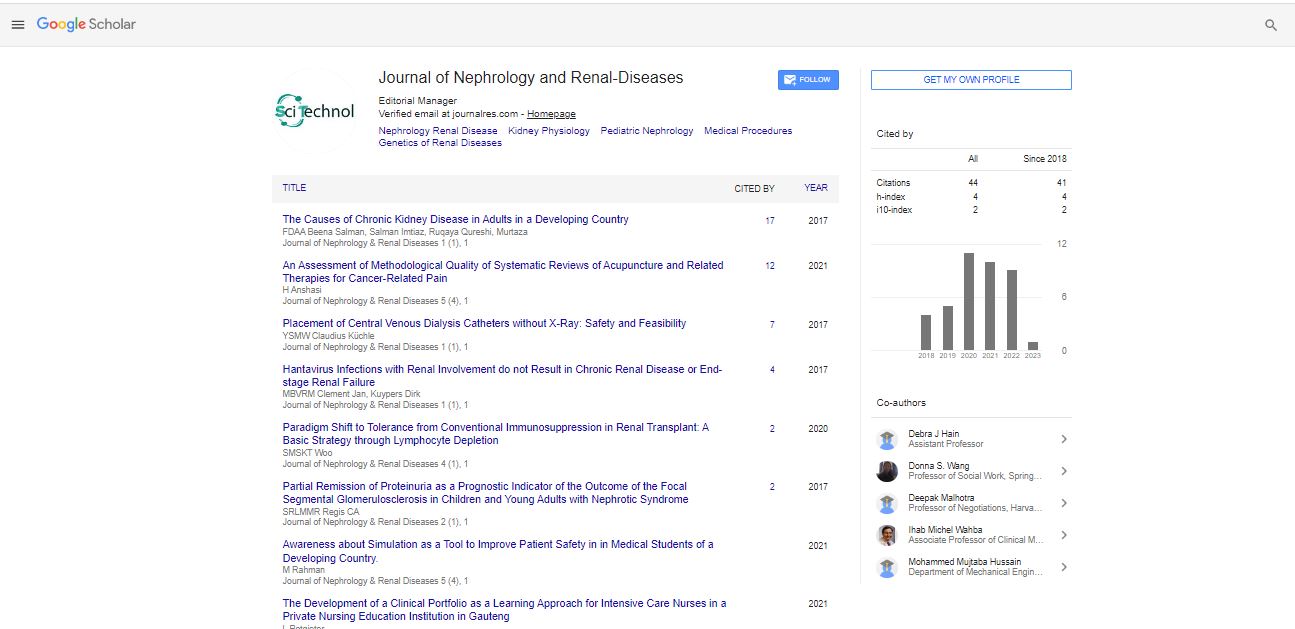Organ donation, reasons for family refusal
Sanae Ezzaki, I Failal, N Mtioui, S Elkhayat, G Medkouri, M Zamd, M Benghanem and B Ramdani
CHU Ibn Rochd, Morocco
: J Nephrol Ren Dis
Abstract
Introduction: Kidney transplantation from living donor or brain dead is the substitution method of choice in end stage renal disease. It is based on the principles of generosity and solidarity cannot be achieved without the donation.
Method: This is a single center retrospective descriptive study conducted over 10 years (2010-2019), compiling all records of all potential donors brain dead recruited by sampling coordination unit of organs and tissues.
Results: 134 patients with brain death were identified, having a mean age of 28.3, with a range of 2 years to 62 years predominantly men (74%), the cause of death was the predominant serious head injury (60%), followed by stroke hemorrhagic (23%), an average creatinine 11.13 mg/l, 60% of patients were on noradrenaline. 80% of kidney samples were associated the corneas, liver or heart. Regarding the reasons for non-collection, these were mainly due to the refusal of families (63%), including the father, mother and spouse, advancing reasons as respect for the integrity of the body, the question of religion, the absence of presumed consent of the deceased or distrust against the medical body. Against medical indications represented 14% non-sampling, with 57% of cardiac arrest, two HIV cases, two cases of viral hepatitis B and two cases of active infection. Other causes have identified two patients with no family and a case of non-availability of the surgical team.
Discussion: The average age of our population is younger observed in the literature (47), the causes of most deaths are stroke, whereas in our context dominated by head injuries caused by road accidents public. The body integrity is a cause of recurrent rejection in other studies.
Conclusion: Kidney donation in brain dead patients is the essential guarantee of access to kidney transplantation for dialysis without potential living donor. It is therefore necessary to optimize withdrawals by expanding the criteria of the donor heart to be stopped and above all to publicize the existence of organ donation and its importance to society
Biography
Sanae Ezzaki has completed her Graduation from the University of Medicine and Pharmacy of Rabat, Morocco. She is currently Resident in Nephrology Hemodialysis at the Ibn Rochd University and Hospital Center in Casablanca, Morocco.
 Spanish
Spanish  Chinese
Chinese  Russian
Russian  German
German  French
French  Japanese
Japanese  Portuguese
Portuguese  Hindi
Hindi 
